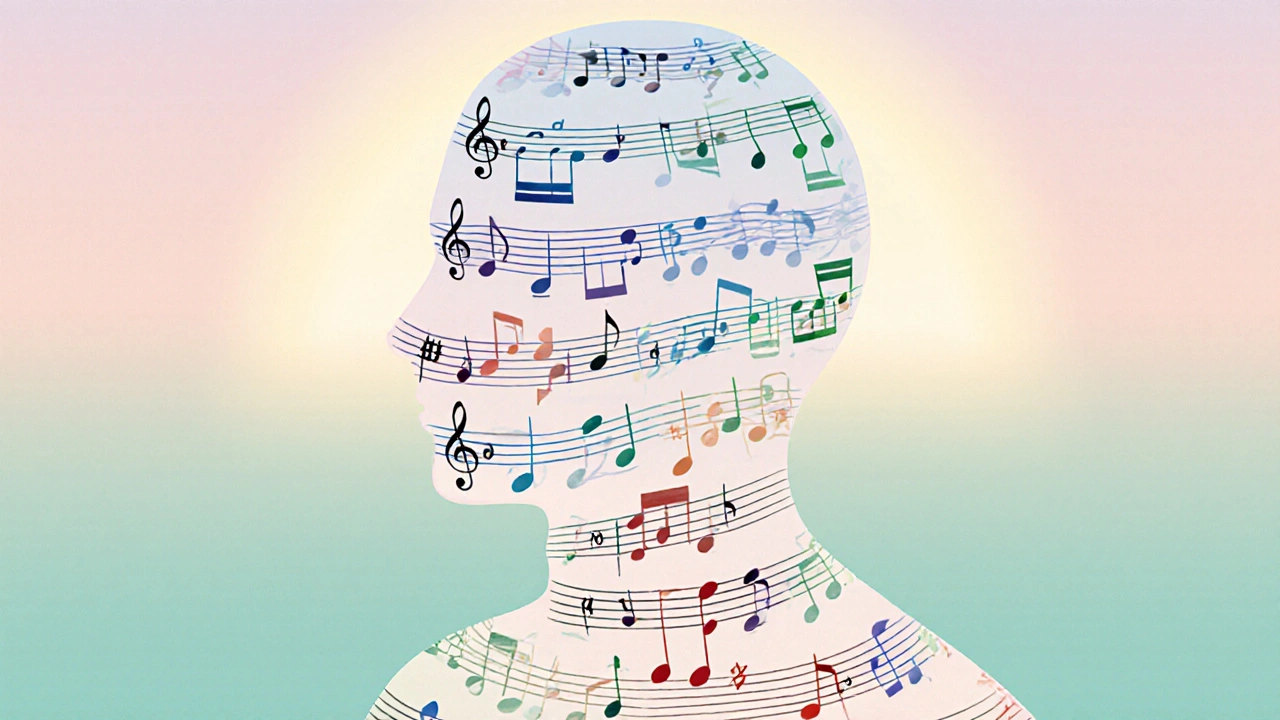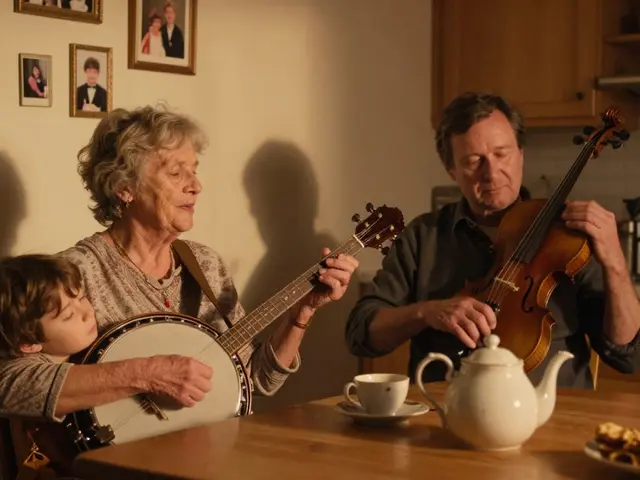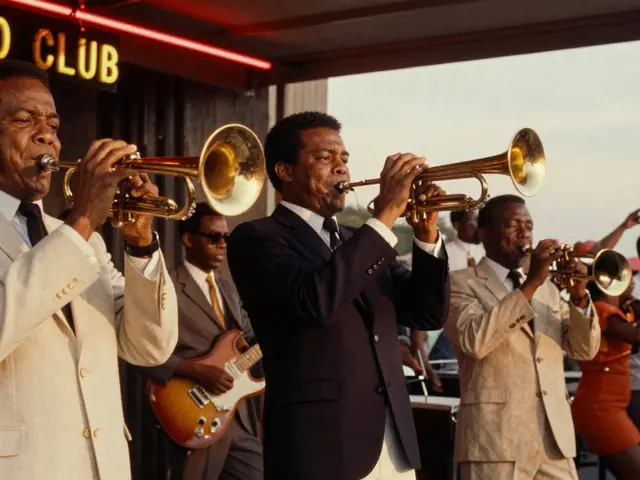Ever wonder why you keep hitting repeat on a particular symphony or why a piano sonata instantly lifts your mood? Your favorite classical music can act like a mirror, reflecting parts of your character you might not even notice. Below we break down how the pieces you love map to personality traits, what each major composer says about you, and how to turn that insight into practical steps for self‑growth.
Key Takeaways
- Listening preferences often align with core personality dimensions like openness, conscientiousness, and emotional stability.
- Beethoven fans tend to be resilient leaders; Mozart lovers are creative problem‑solvers.
- Baroque enthusiasts (Bach, Vivaldi) usually value structure and detail, while Romantic admirers (Tchaikovsky, Chopin) crave emotional depth.
- Use your music taste as a low‑cost self‑assessment tool before making big life choices.
- Avoid the trap of over‑generalizing - combine music insights with other self‑knowledge methods.
Let’s dig into the science, the stories, and the simple exercises that let you read yourself through the notes you love.
How Music Mirrors Personality
Researchers at the University of Helsinki conducted a large‑scale survey linking music‑listening habits to the Big Five personality model. People who gravitated toward complex, layered compositions scored high on openness a trait reflecting curiosity and appreciation for art, ideas, and novelty. Meanwhile, those who favored steady, predictable structures such as baroque concertos tended to score higher on conscientiousness the drive for order, reliability, and goal‑directed behavior.
Emotional stability - or the lack thereof - also shows a clear pattern. Fans of emotionally charged Romantic works often report higher sensitivity and empathy, while listeners of serene Classical‑era pieces display calmer, more balanced moods.
These findings give us a framework: the style, era, and even the specific composer you love can hint at where you sit on these personality axes.
Major Classical Styles and What They Reveal
Classical music isn’t a monolith. Below is a quick guide to the most recognizable styles and the personality clues they carry.
- Baroque (1600‑1750) - Intricate counterpoint, rigid forms. Listeners often value precision, enjoy problem‑solving, and prefer clear guidelines.
- Classical (1750‑1820) - Balanced phrases, elegance, emotional restraint. Fans usually possess strong social skills, gravitate toward harmony, and like fair play.
- Romantic (1820‑1910) - Sweeping melodies, dramatic dynamics. Admirers are typically expressive, value authenticity, and seek deep emotional connections.
- 20th‑Century/Modern (1900‑present) - Atonality, experimentation. Listeners tend to be innovators, comfortable with ambiguity, and enjoy breaking norms.
Identifying which era dominates your playlists is the first step to decoding your inner driver.
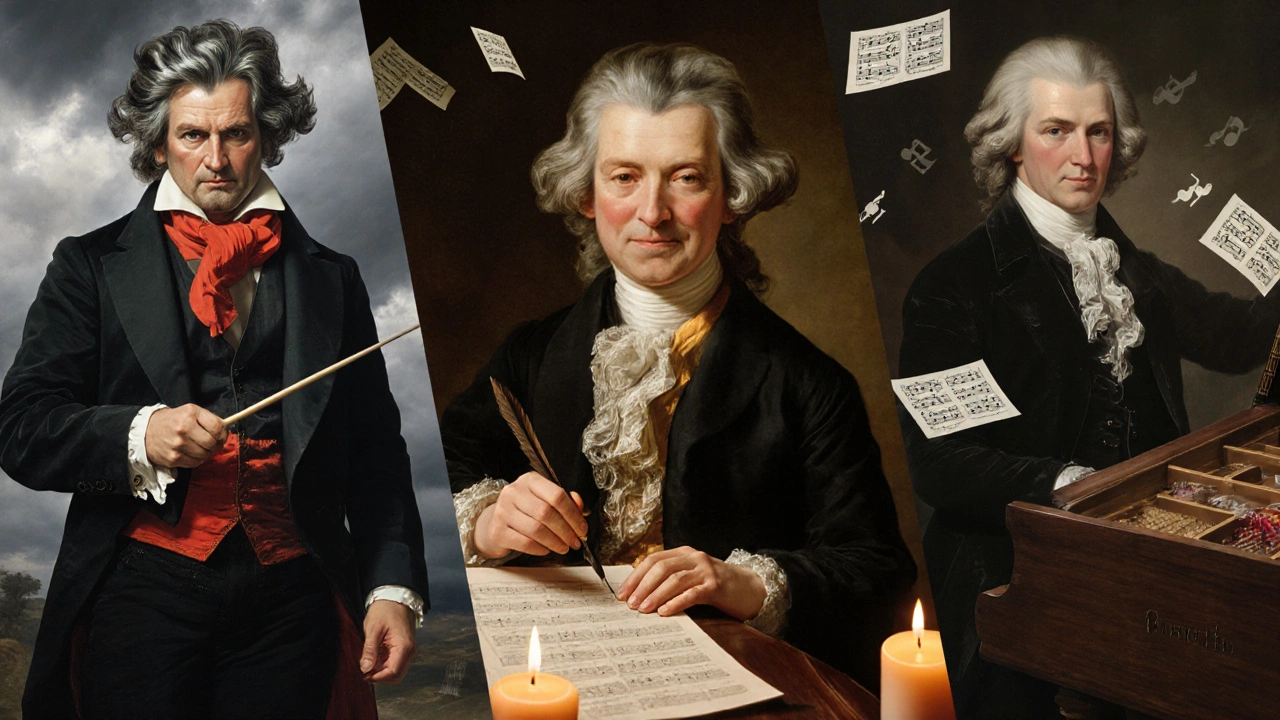
Composer Personality Profiles
Now let’s turn to the people behind the notes. Each composer’s life story and musical language emit a distinct personality “signature.”
Beethoven - The Resilient Visionary
Beethoven German composer (1770‑1827) known for his powerful symphonies and heroic themes challenged deafness, social upheaval, and personal loss yet produced some of the most decisive music ever written. If you constantly replay his Fifth Symphony or the “Moonlight” Sonata, you likely share his tenacity and leadership drive. Traits associated with Beethoven fans include:
- High achievement orientation
- Comfort with adversity
- Strategic thinking under pressure
Practical tip: Channel this resilience into a personal project that feels daunting - you’ll find surprising stamina.
Mozart - The Playful Genius
Mozart Austrian prodigy (1756‑1791) celebrated for his melodic flair and inventive operas blended technical mastery with child‑like curiosity. Listeners who adore his “Eine kleine Nachtmusik” or the “Requiem” often display high creativity, quick problem‑solving, and a love for improvisation.
- Spontaneous idea generation
- Preference for collaborative environments
- Strong sense of humor in work and life
Try swapping a routine task for a short, improvisational brainstorming session - you’ll notice the Mozart vibe activating.
Bach - The Structured Thinker
Bach German Baroque master (1685‑1750) famed for his contrapuntal genius and mathematical precision attracts listeners who appreciate order, logic, and depth. If the “Goldberg Variations” or “Brandenburg Concertos” dominate your list, you’re probably methodical, detail‑oriented, and excel in systematic planning.
- Patience for complex, step‑by‑step projects
- Strong analytical capabilities
- Preference for clear, measurable goals
Apply this by breaking a big goal into smaller, timed blocks-Bach’s fugues are the perfect soundtrack.
Vivaldi - The Energetic Organizer
Vivaldi Italian Baroque composer (1678‑1741) known for "The Four Seasons" and vivid orchestration balances vivid imagery with tight structure. Fans of Vivaldi often crave variety within a framework, showing high adaptability and strong time‑management skills.
- Enjoy multitasking without losing focus
- Love seasonal or cyclical routines
- Thrives in environments that blend creativity and order
Experiment by pairing Vivaldi’s “Spring” with a morning planning ritual; the rhythm can help lock in a productive flow.
Chopin - The Introspective Romantic
Chopin Polish composer (1810‑1849) celebrated for his expressive piano nocturnes and preludes resonates with listeners who value emotional depth, reflection, and artistic sensitivity. If you gravitate toward his Nocturne in E‑flat major, you likely possess strong empathy and a preference for introspective activities.
- Rich inner emotional life
- Appreciation for subtle nuance
- Inclination toward therapeutic or meditative practices
Consider integrating short piano listening breaks into stressful workdays to reset emotional balance.
Tchaikovsky - The Passionate Storyteller
Tchaikovsky Russian composer (1840‑1893) famed for ballets like "Swan Lake" and emotionally charged symphonies draws fans who are dramatic, expressive, and often seek strong narrative arcs in life. Their personality profile includes:
- High emotional expressivity
- Need for meaningful personal stories
- Ability to inspire others through passion
Channel this by crafting a personal “soundtrack” for major life events - it reinforces your narrative drive.
Using Your Music Insight in Everyday Life
Understanding the link between your favorite pieces and personality isn’t just trivia; it can inform choices ranging from career moves to relationship dynamics.
- Self‑Check Before Decisions - When faced with a big choice, pause and ask: "Which composer am I feeling drawn to right now?" If a Beethoven theme surfaces, you might be ready to tackle a tough challenge; if Mozart appears, consider a creative brainstorming session.
- Boost Productivity - Pair listening sessions with task types. Baroque works (Bach, Vivaldi) for analytical work, Romantic pieces (Chopin, Tchaikovsky) for reflective writing.
- Enhance Relationships - Share a favorite piece with friends or partners. Discuss why it resonates; the conversation can uncover hidden values and emotional triggers.
- Support Mental Wellness - Studies in music therapy show that tailored classical playlists lower cortisol levels by up to 15%. Choose works that match your current mood to either soothe or energize.
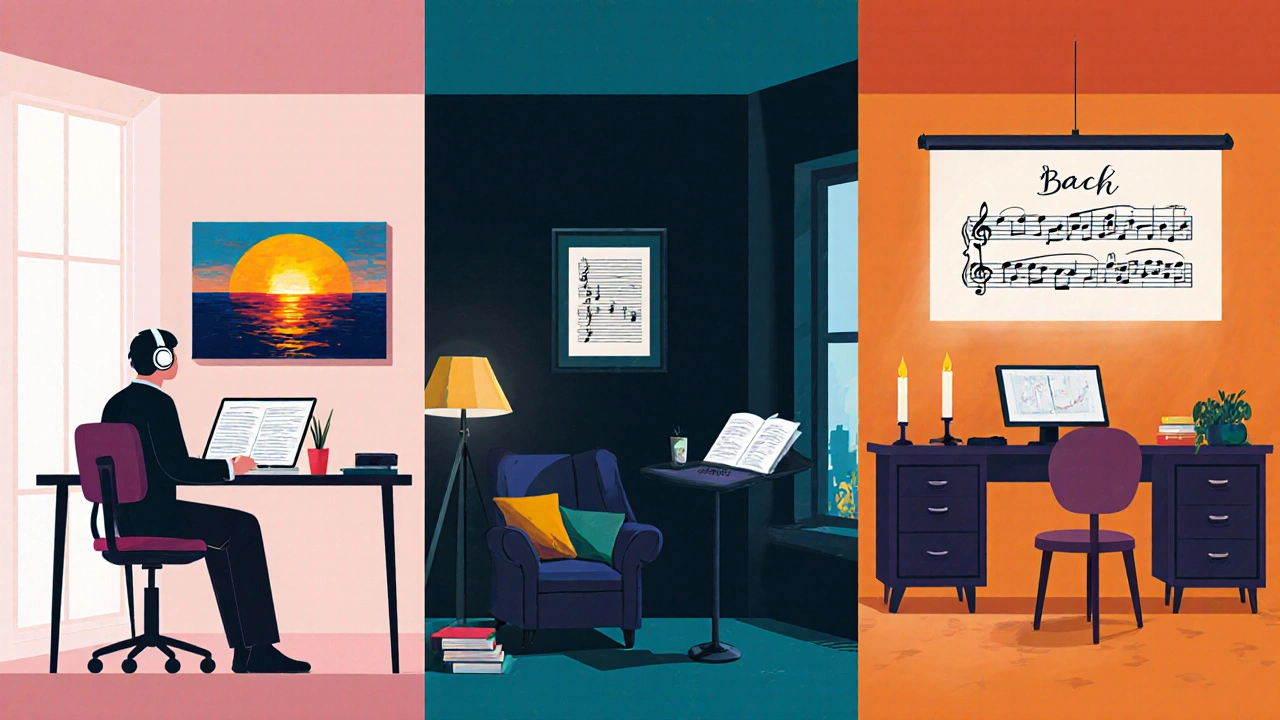
Common Pitfalls and How to Avoid Them
While music offers clues, it’s easy to over‑interpret. Here are three traps and simple fixes:
- Over‑generalizing - Assuming "all Beethoven fans are leaders" ignores individual variation. Combine music insights with other personality tools like the MBTI.
- Static Labeling - Your taste evolves; a shift from Baroque to Romantic may signal personal growth, not conflict.
- Ignoring Context - Mood, environment, and cultural background affect listening. Note the situation when you notice a strong pull toward a piece.
Keep a simple journal: write the piece, the moment, and the feeling. Over weeks, patterns emerge without forcing stereotypes.
Composer vs. Listener Personality Table
| Composer | Typical Listener Traits | Best Listening Context |
|---|---|---|
| Beethoven | Resilient, goal‑driven, confident | Morning workouts, high‑stakes projects |
| Mozart | Creative, socially agile, playful | Brainstorming sessions, social gatherings |
| Bach | Analytical, detail‑oriented, disciplined | Focused study, coding, data analysis |
| Vivaldi | Adaptable, organized, energetic | Planning routines, multitasking |
| Chopin | Introspective, empathetic, nuanced | Evening relaxation, journaling |
| Tchaikovsky | Passionate, narrative‑focused, expressive | Creative writing, storytelling, therapy |
Mini‑FAQ
Can listening to a single composer define my whole personality?
No. A favorite composer highlights certain tendencies, but personality is multi‑dimensional. Use the insights as one piece of a broader self‑assessment toolkit.
What if I love multiple, seemingly opposite styles?
That indicates flexibility and a rich emotional palette. It’s common for people to gravitate to different composers depending on mood or life phase.
Is there scientific proof that music reveals personality?
Several peer‑reviewed studies, including a 2022 meta‑analysis from the Journal of Personality and Social Psychology, show moderate correlations (r≈0.30) between music preferences and the Big Five traits.
How can I use this knowledge at work?
Match task types to music styles: Baroque for data‑heavy tasks, Romantic for creative brainstorming, Beethoven for leadership meetings. It can boost focus and morale.
Should I change my listening habits to become a different type of person?
Listening won’t magically rewrite your traits, but exposing yourself to new styles can stretch your emotional range and improve cognitive flexibility.
Next time you hit play, pay attention to the composer, the era, and the feeling that washes over you. Those clues aren’t just musical - they’re windows into who you are and who you might become.

